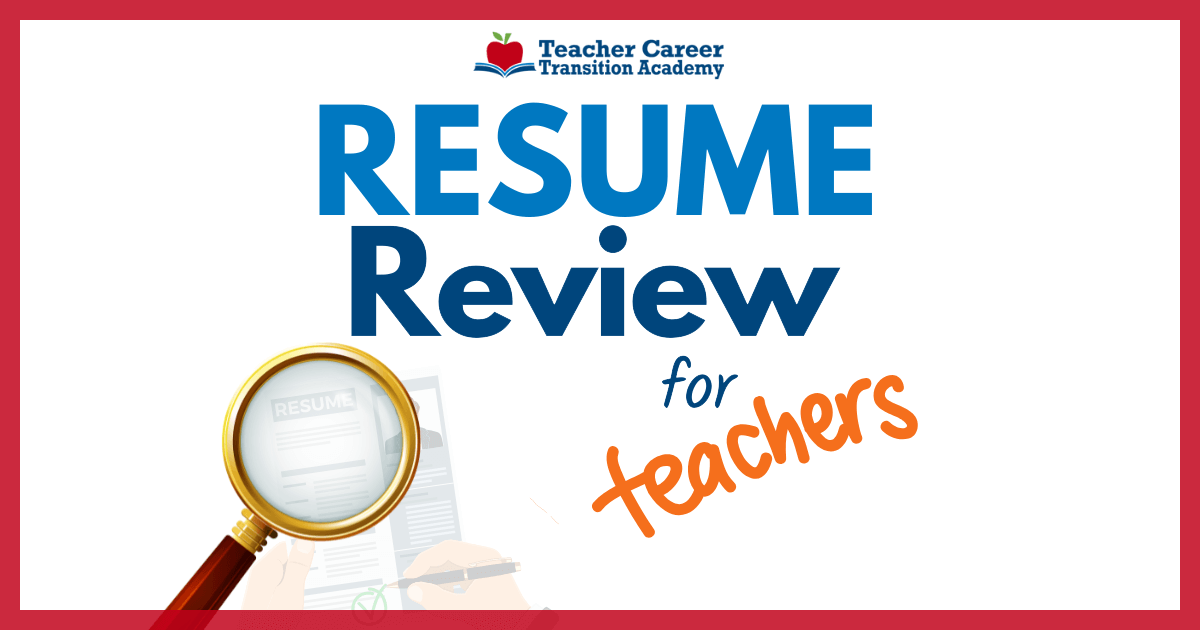What is Imposter Syndrome: A Guide for Teachers Transitioning Careers

About This Post:

Join our mailing list
Policy Pages
LinkedIn Strategist
Deiera Bennett is the owner of Career Confidence by Dee. She uses her 6+ years of marketing, writing, and education experience to teach jobseekers how to market themselves for new careers. Deiera currently works for a branding agency as a LinkedIn Strategist & Ghostwriter for CEOs. Whether you’re a teacher or a CEO, her goal is to help you confidently communicate your value to your audience.
Corporate Learning & Development Executive
Charissa Stowers is an experienced senior level Learning and Development Director. Charissa has a proven track record of development and launch of innovative, industry leading programs that help people ENJOY learning. She has experience hiring and managing teams within the L&D space. With over 15 years of career experience in the technology field, she has had many roles at various companies. She’s worked at small tech startups, and at large international companies such as Apple and Pandora/Sirius XM.
Life & Career Coach
Kate Hutson is a Life & Career Coach providing trusted coaching for professional women to show up with confidence and take control of their careers. After a decade of passionate work as a business leader, teacher, and coach, Kate turned her passion for mentoring others into practical knowledge for the real world– skills that women can use in their everyday lives to achieve their long-term career goals and live with more joy, energy, and fulfillment.
Career Exploration Coach & CEO @WOKEN
Rachel Serwetz’ early professional experience was at Goldman Sachs in Operations and at Bridgewater Associates in HR. From there, she was trained as a coach at NYU and became a certified coach through the International Coach Federation. After this, she worked in HR Research at Aon Hewitt and attained her Technology MBA at NYU Stern. Throughout her career, she has helped hundreds of professionals with career exploration and for the past 4.5 years she has been building her company, WOKEN, which is an online career exploration platform to coach professionals through the process of clarifying their ideal job and career path. She is also an Adjunct Professor of Entrepreneurship at Binghamton University and has served as a Career Coach through the Flatiron School/WeWork, Columbia University, and Project Activate. Learn more about WOKEN here: iamwoken.com.
Career Coach
Alyson Garrido is passionate about supporting professionals to advance their careers and find jobs they will enjoy. As a career coach, she partners with her clients to identify their strengths and create a path toward a more fulfilling career. Alyson provides support around interview preparation, performance reviews and salary negotiations, ensuring that her clients present themselves in the best possible light. Learn more or book a session with Alyson by visiting www.alysongarrid.com.
Customer Success Executive/CEO
Annie Dean (she/her) is CEO and Cofounder of RecastSucces; working to diversify the tech industry by helping career transitioners, supporting mentorship, and Fractional Head of Success leadership for SaaS startups. She is also a Udemy for Business and Maven instructor. Previously she was a career transitioner herself. She went on to Customer Success leadership and executive roles at LinkedIn, Coursera, and several startups. She is a wife and mom living in a rural community near Yosemite.
EdTech Executive | CEO of LearnWorld
Lisa Harding is a former EdTech Executive with over 15 years of experience driving growth and innovation in the EdTech market. Most recently, Lisa served as President of SimpleK12, an online professional development company for K-12 educators. Prior to serving as the company President, Lisa held roles in product/content marketing and development, eCommerce, and sales. Lisa has dedicated her career to providing award-winning training and development to classroom teachers. She has also interviewed and hired many career changers – specifically teachers! Throughout her career in the EdTech industry, Lisa has demonstrated strong leadership, a passion for educators, and a deep commitment to providing best-in-class online courseware. Lisa now serves as Co-Founder and CEO of LearnWorld.
GCDF, CPRW
Shannon Schwaebler has over eight years of experience in career development and higher education. She has dedicated her career to supporting individuals in navigating their career paths, providing them with the necessary tools and skillset to confidently navigate their career development process. Shannon understands that career paths are not always straightforward and linear. Instead, she believes that success comes from being prepared for the unpredictable and having the ability to adapt to new situations. Her approach to career development is centered around empowering individuals with the skills and knowledge to succeed in their chosen field. Shannon holds a Bachelor’s degree in Chemistry, a Master’s degree in Higher Education, and multiple certifications, including Global Career Development Facilitator, Certified Professional Resume Writer, Certified Program Planner, and AAUW Salary Negotiation trainer.
Director of Growth Marketing
Yellowdig
Former Educator
Holly Owens is a former educator turned edtech and instructional design leader, with over 18 years of experience at the intersection of education, technology, and marketing. As Director of Growth Marketing at Yellowdig, she helps organizations create meaningful, people-first learning experiences.
She also serves as an Adjunct Professor at Touro University, preparing future instructional designers to thrive in today’s digital learning landscape. Holly hosts the EdUp L&D podcast, where she spotlights the voices and innovations shaping the future of learning—with a strong focus on accessibility, inclusion, and impact.
Educational Consultant, Speaker
Former Educator
Reba Gordon Matthews is an Educational Consultant with Houghton-Mifflin-Harcourt and a a Freelance Coach and Instructional Designer creating eLearning and learner experience courses. She has over 20 years of elementary teaching experience and has served as an adjunct instructor for Early Childhood Education courses. She holds a Masters in Educational Technology and a Masters in Instructional Design.
As a way of “Paying It Forward,” Reba is also the co-founder and Executive Director of The Jamal Gordon-Hill Foundation. This small family organization supports at-risk young people with academic tutoring, technology training, and college scholarships.
Super Charge Your
Career Transition!
Join our email list for exclusive premium content.
Register for Webinar
Join our newsletter!
Join our
Mailing List!
Curriculum Designer

Global Career Development Facilitator
Marcia coaches individuals to live their best professional lives. Her expertise lies in the areas of career services, coaching, workshop facilitation, and writing. Her coaching style is both holistic and strategic. It is also rooted in DEI principles and practices. She is a Global Career Development Facilitator and a Certified Career Services Provider through the National Career Development Association. She is also certified through Recovery Innovations International to support people with a recovery mindset. Additionally, she holds a Master of Arts degree in Rhetoric and the Teaching of Writing and is a former English instructor and K-12 teacher.
Amy Donato is a former middle school science teacher turned instructional coach and professional learning facilitator, passionate about helping educators thrive. After years in the brick-and-mortar classroom, she now supports teachers through practical coaching and engaging PD that builds confidence in teachers and improves instruction for students.
Edu. Content manager at Book Creator
Former Educator
Katie Fielding is an educational consultant with 20 years of public school experience. She champions digital accessibility, creativity, and Universal Design for Learning (UDL) in classrooms. Specializing in technology and STEM integration, Katie creates interdisciplinary instructional experiences and shares her expertise through presentations and workshops. Recognized as VSTE Coach of the Year in 2018 and a featured voice at ISTELive 2024, she holds multiple certifications, including UDL Credential 2, ISTE Certification, Google Innovator, and Microsoft Innovative Educator Expert. She is a trainer for the ISTE Certified Educator program, and works for Book Creator as their Educational Content Manager.
Director of Solutions Engineering
Steven W. Anderson is a former educator and nationally recognized voice in educational technology, now serving as Director of Solutions Engineering at PowerSchool. With over a decade of leadership experience supporting schools and districts, Steven helps design strategic solutions that elevate teaching, learning, and digital integration across K–12 systems. At the summit, he’ll share his perspective as former teacher turned hiring manager.
Nicholas Provenzano is a former classroom educator who now leads community and content strategy at SchoolAI, where he trains teachers and develops tools to enhance student learning through AI-powered solutions. With over 20 years of experience as a teacher, consultant, and professional development facilitator, Nicholas is passionate about empowering educators to integrate technology and maker-centered learning in meaningful ways. At the summit, he’ll share his perspective as former teacher making the transition and advice from the “other side” of the hiring table.
Director of Global L&D Krispy Kreme
Timothy Gwynn is a former teacher turned corporate learning strategist, currently serving as the Director of Global Learning & Development at Krispy Kreme. With a background that spans education, instructional design, and enterprise training, he now leads global professional development initiatives that prioritize learner engagement and align closely with business goals.
NOW AVAILABLE!
You Asked.
We Listened.
Limited time Introductory Offer + Member Discount!
Limited spots available -
book before pricing goes up!

NOW AVAILABLE!

You Asked.
We Listened.
Limited time Introductory Offer + Member Discount!
Limited spots available -
book before pricing goes up!

